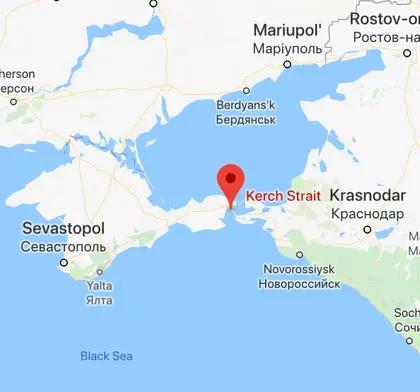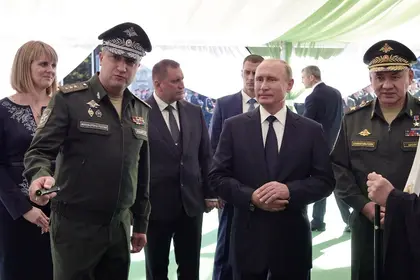Editor’s Note: This article has been updated to clarify some probable and potential effects of martial law.
During an emergency meeting of the National Security and Defense Council on Nov. 25, President Petro Poroshenko said he would ask the parliament to support a declaration of martial law in Ukraine. The parliament is set to have an emergency meeting at 4 p.m. on Nov. 26.
The decision comes as a reaction to Russia’s attacks on three Ukrainian ships in the Azov Sea earlier on Nov. 25 and the Kremlin’s decision to stop all commercial shipping through the Kerch Strait that connects the Azov and Black seas. (According to Russian media reports, the strait was re-opened on the morning of Nov. 26.)
The severity and scope of martial law, which Poroshenko has avoided calling for since the start of Russia’s war against Ukraine in 2014, will be decided by Poroshenko and then must be supported by parliament. In 2015, the parliament passed a bill “On the Legal Regime of Martial Law.”
However, exactly what martial law will include remains unclear, as not every possible measure must be imposed. While the Ukrainian leadership has downplayed the potential affects of martial law on both the Ukrainian military and civilians, the law allows for expansive measures to guarantee national security. The restrictions can include:
- Increased security and special operation regimes for critical economic and infrastructure sites. The Cabinet of Ministers would confirm a list of sites requiring additional security.
- Citizens could be obliged to carry out socially necessary work. Any citizen capable of working can be forced to work at a defense facility instead of doing their regular job.
- The state could take control of private, communal, or state company property if necessary.
- The state could regulate telecommunications, radio, and printing companies and infrastructure; mass media; and cultural organizations for wartime needs. Restrictions could be placed on amateur radio and the transmission of information through computer networks. The state can also use this infrastructure to spread information aimed at the military and/or the population.
- A ban on holding presidential, parliamentary, or local elections.
- A ban on national and local referendums.
- A ban on changes to the Ukrainian Constitution and to the Constitution of the Autonomous Republic of Crimea (the legal and territorial entity encompassing the Crimean Peninsula within the Ukrainian state).
- A ban on peaceful protests, marches, gatherings, and other mass events.
- Within the constitutional and legal framework, the state can ban political activities it deems detrimental to state security. These could include everything from activities aimed at ending the existence of Ukraine as a state to those promoting interethnic hatred.
- Evacuating the population and material or cultural valuables if their safety is in danger. Again, the Cabinet would play a key role in determining what this includes.
- Managers at enterprises and organizations could be fired for poor work performance and replaced with acting managers.
- The government could pass additional measures to guard state secrecy.
- Citizens of a foreign state that threatens Ukraine with aggression or an attack could be subject to forced relocation and internment.
- Special rules for the production and sale of potent medications containing narcotic or psychotropic components. The Cabinet would determine the list of medications.
- The state can limit relocation of its citizens, as well as foreigners.
- A curfew.
- A ban on selling alcohol.
- Citizens can be ordered to host military personnel or internally displaced civilians in their homes.
You can also highlight the text and press Ctrl + Enter







Comments (0)